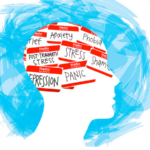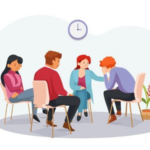
Childhood trauma casts a long shadow, often manifesting in unexpected ways during adulthood. As we navigate the complexities of recognizing these signs, it’s crucial to understand the profound impact it can have on individuals. In this article, we will delve into the subtle indicators of childhood trauma in adults, shedding light on the importance of early recognition and seeking professional help.
Understanding Childhood Trauma
Emotional Challenges
Living with unresolved childhood trauma can lead to a myriad of emotional challenges. Adults may grapple with anxiety, depression, or unexplained mood swings. Understanding these emotional upheavals as potential signs of deeper trauma is the first step towards healing.
Relationship Difficulties
Childhood trauma frequently manifests itself in interpersonal relationships. Adults may struggle with trust issues, forming and maintaining connections becomes arduous, and intimacy might be challenging to establish.
Self-Esteem Issues
A damaged sense of self-worth is a common aftermath of childhood trauma. Individuals may battle with low self-esteem, feelings of inadequacy, or a persistent sense of guilt that hinders personal growth.
Physical Symptoms
Chronic Health Problems
Childhood trauma has been linked to chronic health issues, such as heart disease and autoimmune disorders. Recognizing these physical manifestations is crucial in understanding the holistic impact of trauma on an individual’s well-being.
Stress-Related Disorders
The body’s response to prolonged stress can result in disorders like insomnia, migraines, and digestive problems. These physical symptoms should not be overlooked when assessing the potential presence of childhood trauma.
Behavioural Patterns
Coping Mechanisms
Adults who experienced childhood trauma may develop coping mechanisms that, while initially adaptive, can become detrimental. These may include substance abuse, compulsive behaviours, or engaging in risky activities as a means of escape.
Unhealthy Habits
Patterns of self-sabotage or engaging in destructive habits may indicate unresolved trauma. These behaviours often serve as misguided attempts to regain control or numb the emotional pain.
The Role of Dr. Neha Gupta and Cognivia Clinic
Introducing Dr. Neha Gupta, a renowned trauma specialist leading the way in innovative approaches to healing. At Cognivia Clinic, Dr. Gupta and her team employ a holistic method that combines therapeutic interventions with a compassionate understanding of each individual’s unique journey.
The Connection Between Childhood Trauma and Mental Health
Common Mental Health Issues
Understanding the connection between childhood trauma and mental health is vital. PTSD, anxiety, and depression are common mental health conditions that are frequently caused by unresolved childhood trauma.
Treatment Options
Acknowledging the link between trauma and mental health opens avenues for targeted treatment. Therapy, medication, and support groups are effective tools in addressing and managing the mental health aspects of childhood trauma.
Raising Awareness
Importance of Education
It is our communal duty to increase awareness of childhood trauma. Education dispels myths, reduces stigma, and encourages a more compassionate approach towards those who have experienced trauma.
Community Outreach
Engaging in community outreach programs spreads awareness and creates a supportive environment. Initiatives that provide tools, knowledge, and a forum for discussion help to build a more informed and compassionate community.
How to Support Someone with Childhood Trauma
Listening and Validation
Supporting someone with childhood trauma begins with active listening and validation. Offering a non-judgmental space for them to share their experiences fosters trust and emotional healing.
Encouraging Professional Help
Gently encouraging individuals to seek professional help is a crucial form of support. Assure them that taking this step is a sign of strength and a positive commitment to their well-being.
Normalizing Mental Health Discussions
Normalizing discussions around mental health challenges the stigma attached to seeking help. People can feel more comfortable talking about their mental health issues in a culture that encourages open communication.
Summary
In recognizing the signs of childhood trauma in adults, we empower individuals to take control of their healing journey. Dr. Neha Gupta’s pioneering work at Cognivia Clinic serves as a beacon of hope, emphasizing the importance of seeking professional help. By fostering understanding, empathy, and open dialogue, we can collectively contribute to breaking the cycle of trauma and creating a more supportive society.




